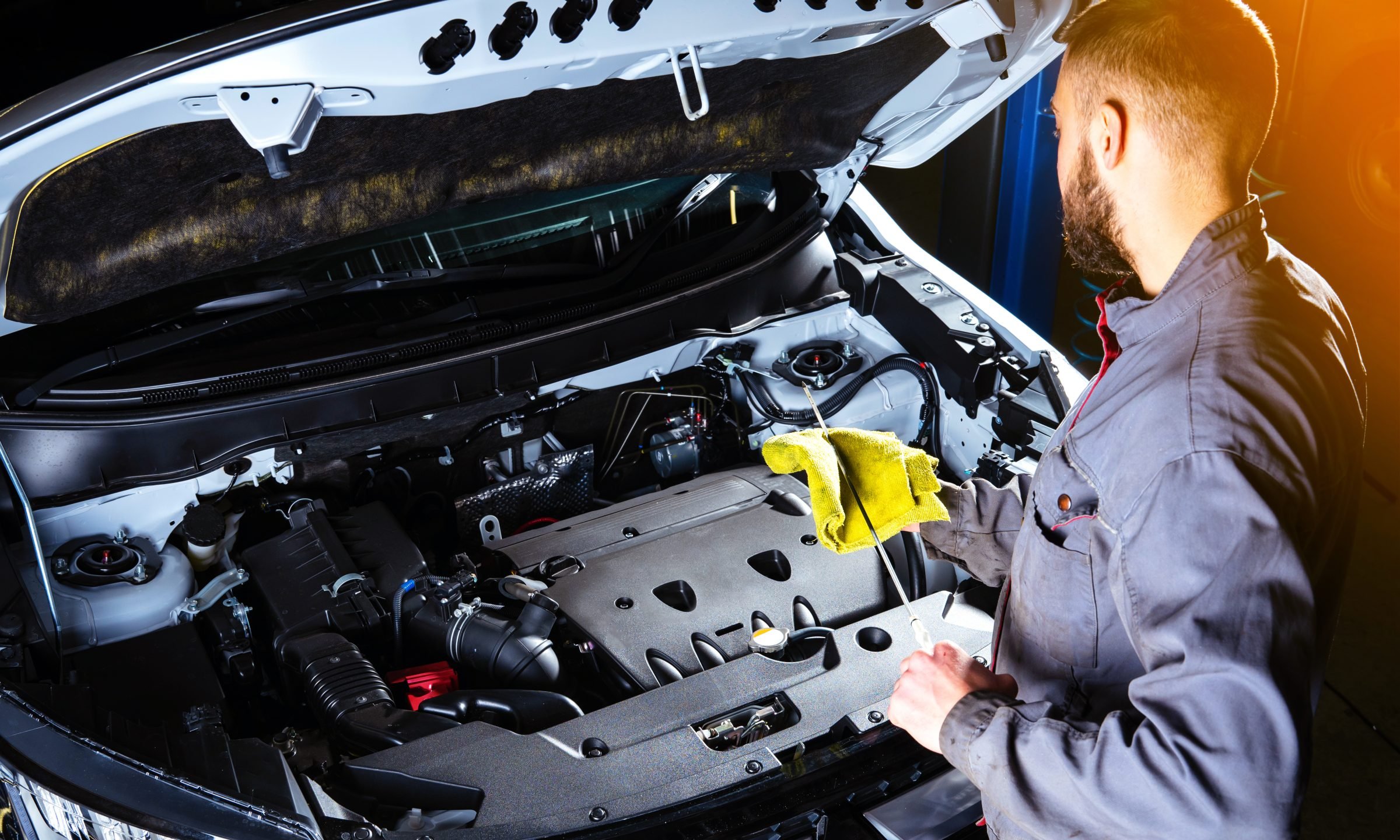All Categories
Featured
Your car's engine is among one of the most intricate systems in your vehicle, and every component plays an essential role in guaranteeing it runs smoothly. Amongst these, the timing belt is among the most vital yet typically neglected components of your engine. In charge of integrating the turning of the crankshaft and camshaft, the timing belt ensures the engine's shutoffs close and open at the right times throughout the burning process. If the timing belt fails, it can lead to serious engine damages. Below's why timing belt substitute is vital for your vehicle's performance and durability.
What Is a Timing Belt? The timing belt is a long, toothed rubber or composite belt that connects the crankshaft to the camshaft(s) in an internal burning engine. Its task is to keep the engine's valves and pistons in sync, ensuring the engine runs effectively. The timing belt likewise manages various other essential engine features like the water pump and the power guiding pump, depending on the vehicle.
![]()
Without the correct timing, the engine's pistons and valves can collide, leading to substantial and costly damages. Replacing the timing belt on routine is one of the finest means to guarantee your engine runs at its best and prevent pricey repairs.
Why Timing Belt Replacement Issues. Avoiding Catastrophic Engine Damages: The most significant danger of not replacing a worn timing belt is engine failing. Changing the timing belt at the recommended periods is the ideal means to prevent such devastating damage, conserving you from the anxiety and high expense of engine repair services or replacement.
![]()
Keeping Engine Effectiveness: A timing belt that's in great condition makes certain that all engine components operate in ideal harmony. If the timing belt is worn or extended, it can create the engine to lose power, experience harsh idling, or struggle to begin. By changing the timing belt routinely, you can keep your engine going for peak efficiency, which aids keep ideal fuel economic situation and efficiency.
Avoiding Unexpected Breakdowns: A broken timing belt can create your engine to quit suddenly, possibly leaving you stranded in the center of a trip. By replacing your timing belt on time, you reduce the threat of sudden break downs that might leave you in a bothersome or unsafe circumstance. Routine upkeep minimizes the possibilities of experiencing these sort of interruptions, aiding you remain on the road longer without bothering with your engine failing.
Affordable Upkeep: Timing belt replacement is a lot more economical than fixing or replacing an engine that's been harmed due to a timing belt failing. While the expense of changing the timing belt may vary depending on your car and its place, it is even more budget-friendly than the costs connected with significant engine repair work or replacements. Changing your timing belt at the recommended periods can conserve you a considerable amount of money over the future by preventing damages to your engine.
When Should You Change Your Timing Belt? The timing belt does not last forever, and a lot of producers suggest replacing it between 60,000 and 100,000 miles. However, the exact timing relies on your car's make, version, and driving conditions, so it's vital to examine your proprietor's handbook for certain guidance.
Indicators that your timing belt might require interest include unusual engine sounds (such as a shrill whining or ticking sound), problem beginning the engine, or a decline in engine efficiency. If you observe any of these indicators, it's vital to have the timing belt examined by a professional mechanic.
![]()
Conclusion. The timing belt is a essential yet tiny part of your engine, and routine substitute is essential to maintaining your vehicle's performance and avoiding expensive damages. By remaining on top of timing belt upkeep, you'll guarantee your engine operates successfully, stay clear of unanticipated breakdowns, and protect your cars and truck from significant repair work. Maintain an eye on your vehicle's recommended timing belt replacement schedule, and always consult with a trusted technician to maintain your engine running efficiently for many years to come.
What Is a Timing Belt? The timing belt is a long, toothed rubber or composite belt that connects the crankshaft to the camshaft(s) in an internal burning engine. Its task is to keep the engine's valves and pistons in sync, ensuring the engine runs effectively. The timing belt likewise manages various other essential engine features like the water pump and the power guiding pump, depending on the vehicle.

Without the correct timing, the engine's pistons and valves can collide, leading to substantial and costly damages. Replacing the timing belt on routine is one of the finest means to guarantee your engine runs at its best and prevent pricey repairs.
Why Timing Belt Replacement Issues. Avoiding Catastrophic Engine Damages: The most significant danger of not replacing a worn timing belt is engine failing. Changing the timing belt at the recommended periods is the ideal means to prevent such devastating damage, conserving you from the anxiety and high expense of engine repair services or replacement.

Keeping Engine Effectiveness: A timing belt that's in great condition makes certain that all engine components operate in ideal harmony. If the timing belt is worn or extended, it can create the engine to lose power, experience harsh idling, or struggle to begin. By changing the timing belt routinely, you can keep your engine going for peak efficiency, which aids keep ideal fuel economic situation and efficiency.
Avoiding Unexpected Breakdowns: A broken timing belt can create your engine to quit suddenly, possibly leaving you stranded in the center of a trip. By replacing your timing belt on time, you reduce the threat of sudden break downs that might leave you in a bothersome or unsafe circumstance. Routine upkeep minimizes the possibilities of experiencing these sort of interruptions, aiding you remain on the road longer without bothering with your engine failing.
Affordable Upkeep: Timing belt replacement is a lot more economical than fixing or replacing an engine that's been harmed due to a timing belt failing. While the expense of changing the timing belt may vary depending on your car and its place, it is even more budget-friendly than the costs connected with significant engine repair work or replacements. Changing your timing belt at the recommended periods can conserve you a considerable amount of money over the future by preventing damages to your engine.
When Should You Change Your Timing Belt? The timing belt does not last forever, and a lot of producers suggest replacing it between 60,000 and 100,000 miles. However, the exact timing relies on your car's make, version, and driving conditions, so it's vital to examine your proprietor's handbook for certain guidance.
Indicators that your timing belt might require interest include unusual engine sounds (such as a shrill whining or ticking sound), problem beginning the engine, or a decline in engine efficiency. If you observe any of these indicators, it's vital to have the timing belt examined by a professional mechanic.

Conclusion. The timing belt is a essential yet tiny part of your engine, and routine substitute is essential to maintaining your vehicle's performance and avoiding expensive damages. By remaining on top of timing belt upkeep, you'll guarantee your engine operates successfully, stay clear of unanticipated breakdowns, and protect your cars and truck from significant repair work. Maintain an eye on your vehicle's recommended timing belt replacement schedule, and always consult with a trusted technician to maintain your engine running efficiently for many years to come.
Latest Posts
Picking the Right Roof Shade: Influence On Energy Performance
Published May 21, 25
1 min read
Check Out Brake Repair & More: Full Auto Care Solutions from Montclare Auto Repair
Published May 21, 25
1 min read
Searching for Budget-Friendly Oil Change Solutions in St. Louis? Car-X Delivers Quality Care
Published May 20, 25
1 min read
More
Latest Posts
Picking the Right Roof Shade: Influence On Energy Performance
Published May 21, 25
1 min read
Check Out Brake Repair & More: Full Auto Care Solutions from Montclare Auto Repair
Published May 21, 25
1 min read
Searching for Budget-Friendly Oil Change Solutions in St. Louis? Car-X Delivers Quality Care
Published May 20, 25
1 min read